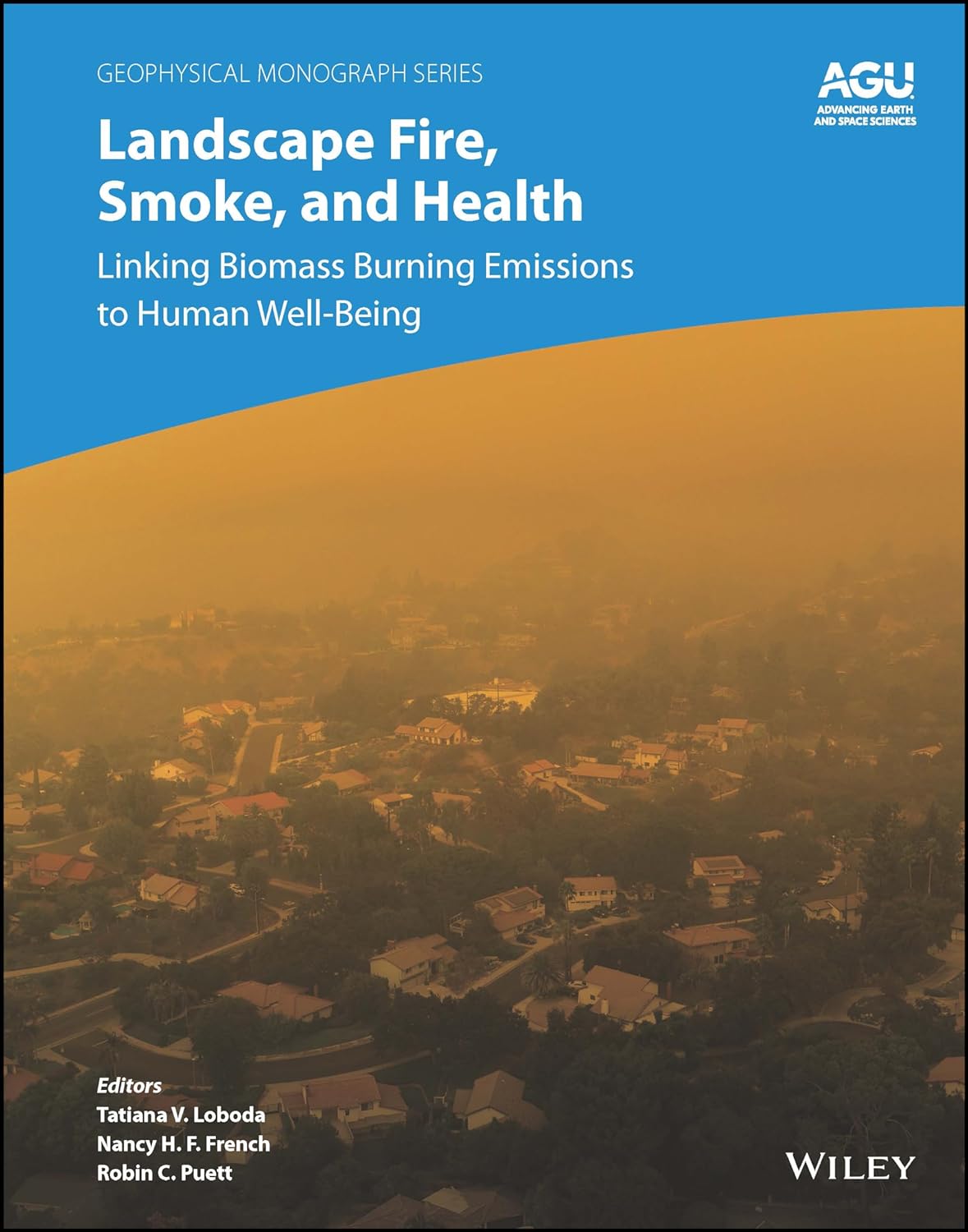The Geophysical Monograph Series has recently published "Landscape Fire, Smoke, and Health: Linking Biomass Burning Emissions to Human Well-Being." The book, edited by GEOG Chair and Professor Tatiana Loboda, School of Public Health and Associate Dean of Research Robin Puett at UMD, and Senior Research Scientist Nancy French at the Michigan Tech Research Institute (MTRI) provides an in-depth examination of the complex relationship between wildfires, air pollution and human health.
In a world witnessing an increase in both the frequency and severity of wildfires, understanding the when and where of these fires, the pollutants they release, and their consequences for human well-being is of growing significance. "Landscape Fire, Smoke, and Health" aims to address these critical questions by bridging multiple scientific disciplines.
Key topics explored in the book include:
- Core concepts, principles, and terminology related to smoke and air quality used in different disciplines
- Observational and modeling tools and approaches in fire science
- Methods to sense, model, and map smoke in the atmosphere
- Impacts of biomass burning smoke on the health and well-being of children and adults
- Perspectives from researchers, modelers, and practitioners
- Case studies from different countries
- Information to support decision-making and policy
To understand the complex nature of how wildfire smoke pollution affects human health requires a multi-disciplinary approach, explained Loboda.
"This book provides the foundational knowledge on fire science, emissions, atmospheric transport, and how and why it impacts people. This information will accelerate the development of a 'common core knowledge' that members of multi-disciplinary teams need for successful collaborations," she said. "And that in turn will lead to stronger teams, better research questions, and more robust science."
The book is available in various formats, offering insights for those interested in geographical and environmental sciences, and public health.


